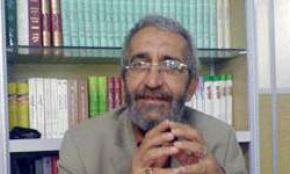ID :
179902
Wed, 05/04/2011 - 14:07
Auther :
Shortlink :
https://www.oananews.org//node/179902
The shortlink copeid
CIA Sets up Laboratories along Borders to Smuggle Hallucinogenic Drugs to Iran

TEHRAN, May 4 (FNA)- CIA and Israeli spy agency, Mossad, have set up a number of drug laboratories along Iran's Eastern borders to produce and smuggle hallucinogenic drugs to Iran, sources reported.
"The CIA-Mossad Joint Staff has started setting up hallucinogenic-drugs production centers at Iran's Eastern borders (with Afghanistan) to produce and smuggle huge drug cargos to Iran through collaboration with the drug mafia operating on the other sides of Iran's Eastern borders (in Afghanistan), " Researcher and investigator Majid Abhari told FNA on Wednesday.
The source said this joint staff has embarked on encouraging drug-traffickers to smuggle these cargos to Iran through odd methods like credit transaction, because drug dealers and traffickers do all their transactions in cash, and credit transaction is meaningless as far as drug deals are concerned.
Earlier, Iranian Interior Minister Mostafa Mohammad Najjar had warned that the Zionist and CIA agents are seeking to boost drug-trafficking in Iran.
"Zionists and CIA's intelligence and security agents stationed in the region are helping drug-traffickers to cross Iran's shared borders with Afghanistan," Mohammad Najjar said last month.
He added that the so-called human rights advocate (the US) is so furious at Iran that it has made large investments to replace traditional drugs with industrial drugs to change drug addiction habits in Iran.
The destructive effects of industrial drugs, like crack and Morphine, is more than the traditional ones and the enemy has planned to spread drug addiction, specially addiction to these industrial narcotics, in Iran, Mohammad Najjar warned.
Eastern Iran borders Afghanistan, which is the world's number one opium and drug producer. Iran's geographical position has made the country a favorite transit corridor for drug traffickers who intend to smuggle their cargoes from Afghanistan to drug dealers in Europe.
Iran spends billions of dollars and has lost thousands of its police troops in the war against traffickers. Owing to its rigid efforts, Iran makes 85 percent of the world's total opium seizures and has turned into the leading country in drug campaign.
Over the past five years, it has contributed more than $50 million annually to Afghan anti-narcotics efforts, but Iranian police officials maintain that drug production in Afghanistan has undergone a 40-fold increase since the US-led invasion of the country in 2001.
Late in May 2010, UN Secretary General's Special Envoy to Afghanistan Staffan de Mistura acknowledged increased drug production in Afghanistan, and praised Iran's activities and efforts in fighting drug plantation, production and trafficking.
While Afghanistan produced only 185 tons of opium per year under the Taliban, according to the UN statistics, since the US-led invasion, drug production has surged to 3,400 tons annually. In 2007, the opium trade reached an estimated all-time production high of 8,200 tons.
Afghan and Western officials blame Washington and NATO for the change, saying that allies have "overlooked" the drug problem since invading the country nearly 10 years ago.
"The CIA-Mossad Joint Staff has started setting up hallucinogenic-drugs production centers at Iran's Eastern borders (with Afghanistan) to produce and smuggle huge drug cargos to Iran through collaboration with the drug mafia operating on the other sides of Iran's Eastern borders (in Afghanistan), " Researcher and investigator Majid Abhari told FNA on Wednesday.
The source said this joint staff has embarked on encouraging drug-traffickers to smuggle these cargos to Iran through odd methods like credit transaction, because drug dealers and traffickers do all their transactions in cash, and credit transaction is meaningless as far as drug deals are concerned.
Earlier, Iranian Interior Minister Mostafa Mohammad Najjar had warned that the Zionist and CIA agents are seeking to boost drug-trafficking in Iran.
"Zionists and CIA's intelligence and security agents stationed in the region are helping drug-traffickers to cross Iran's shared borders with Afghanistan," Mohammad Najjar said last month.
He added that the so-called human rights advocate (the US) is so furious at Iran that it has made large investments to replace traditional drugs with industrial drugs to change drug addiction habits in Iran.
The destructive effects of industrial drugs, like crack and Morphine, is more than the traditional ones and the enemy has planned to spread drug addiction, specially addiction to these industrial narcotics, in Iran, Mohammad Najjar warned.
Eastern Iran borders Afghanistan, which is the world's number one opium and drug producer. Iran's geographical position has made the country a favorite transit corridor for drug traffickers who intend to smuggle their cargoes from Afghanistan to drug dealers in Europe.
Iran spends billions of dollars and has lost thousands of its police troops in the war against traffickers. Owing to its rigid efforts, Iran makes 85 percent of the world's total opium seizures and has turned into the leading country in drug campaign.
Over the past five years, it has contributed more than $50 million annually to Afghan anti-narcotics efforts, but Iranian police officials maintain that drug production in Afghanistan has undergone a 40-fold increase since the US-led invasion of the country in 2001.
Late in May 2010, UN Secretary General's Special Envoy to Afghanistan Staffan de Mistura acknowledged increased drug production in Afghanistan, and praised Iran's activities and efforts in fighting drug plantation, production and trafficking.
While Afghanistan produced only 185 tons of opium per year under the Taliban, according to the UN statistics, since the US-led invasion, drug production has surged to 3,400 tons annually. In 2007, the opium trade reached an estimated all-time production high of 8,200 tons.
Afghan and Western officials blame Washington and NATO for the change, saying that allies have "overlooked" the drug problem since invading the country nearly 10 years ago.





